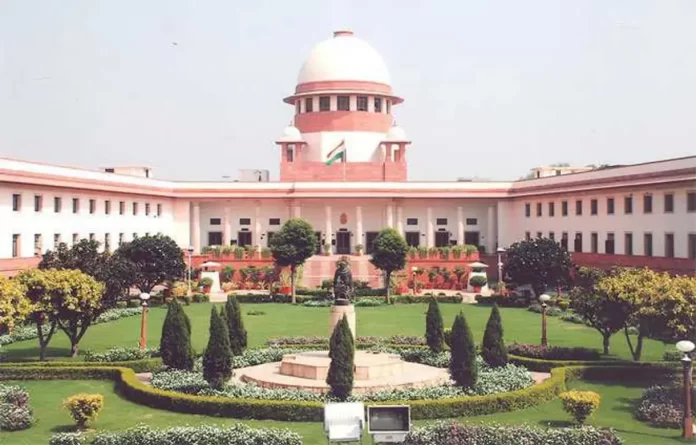The Supreme Court on Friday sought response of the Centre and the Assam government on a plea challenging the Citizenship (Amendment) Rules, 2024, meant to operationalise and regulate the process of grant of Indian citizenship to non-Muslim migrants who came from Pakistan, Bangladesh and Afghanistan before December 31, 2014.
A bench comprising Chief Justice DY Chandrachud and Justice JB Pardiwala took note of the submissions of a lawyer representing petitioner Hiren Gohain, a Guwahati resident, and issued notices to the state government and the union ministries of Home Affairs and External Affairs.
The apex court also ordered that the fresh plea be tagged with those pending on the issue.
The plea stated that the uncontrolled influx of illegal migrants from Bangladesh to Assam has caused huge demographic changes in Assam. It mentioned that the indigenous people, who were once the majority, have now become a minority in their own land.
The bench, while refusing to stay the operation of the CAA Rules, asked the Centre to respond to the applications seeking a stay on their implementation till the court has disposed of the pleas challenging the validity of the Citizenship (Amendment) Act, 2019.
The petitioner, in his plea, said the CAA Rules, 2024 are ultra-vires to the Constitution as they are palpably discriminatory, manifestly arbitrary, illegal and against the basic structure of the Constitution.
The plea stated that the impugned Citizenship (Amendment) Rules, 2024 violates the petitioners fundamental rights guaranteed under Articles 14 (right to equality), 15 (right against discrimination on basis of religion, race, caste etc), 19 (freedom of speech and expression), 21 (right to life and personal liberty) etc of the Constitution.
The petitioner stated that he has filed the plea in his personal as well as in representative capacity of a majority of the indigenous people living in Assam and seeks enforcement of their fundamental rights.
The PM Modi led BJP government on March 11 unveiled the CAA rules and initiated the process of granting Indian citizenship to persecuted non-Muslim migrants: Hindus, Sikhs, Jains, Buddhists, Parsis and Christians from Pakistan, Afghanistan and Bangladesh. The rules came into force with immediate effect, according to a gazette notification.


